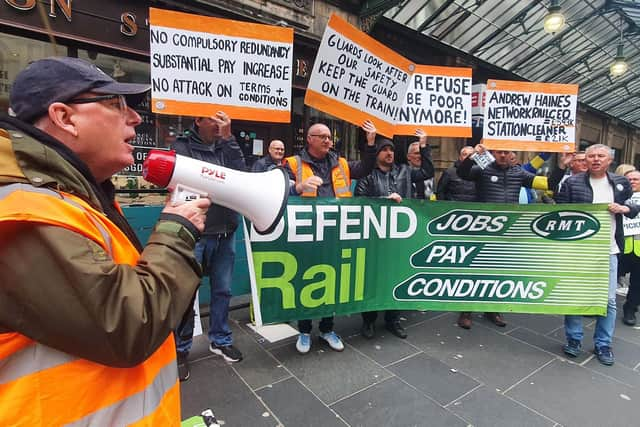Air and rail strikes: Urgent need to resolve industrial disputes fuelling travel disruption threat – Alastair Dalton
Planning travel in the run-up to the festive period can be a stressful experience at the best of times. It may be a “holiday” period, but for many it’s a case of juggling family, friends, meals, presents and children in someone else’s home, and in uncertain weather. Add in a mounting array of strikes by a range of transport workers and it becomes, to use a cliché I admit to have employed before, a nightmare before Christmas.
The latest series of stoppages by the Rail, Maritime and Transport union, which are likely to again bring much of Britain’s rail network to a halt, start on Tuesday followed by three more next week and a further four from January 3. This week, the union announced further walkouts between 6pm on Christmas Eve and 6am on December 27, which are expected to bring forward the last trains before Christmas and scupper much Boxing Day rail travel.
Advertisement
Hide AdAdvertisement
Hide AdAir travellers also face disruption, with the union Unite calling strikes at Inverness and ten other Highlands and Islands airports for December 19 and 22. At Heathrow, baggage handlers employed by Menzies Aviation are due to strike for three days from December 16.


In the latest action, staff at Border Force, which checks passports, will take industrial action at six airports after the PCS union announced strikes at Glasgow, Heathrow, Gatwick, Manchester, Birmingham and Cardiff on December 23-26 and 28-31. Glasgow Airport told me it didn’t expect any significant impact, partly because the number of passengers likely to be affected is lower than normal during the festive season, and many could use e-gates for passport checks.
However, it’s the extra uncertainty caused by such industrial disputes, both on the railways and in aviation, that can be as potentially disruptive to travel planning as any action on the ground as people weigh up their options, such as changing their dates – if they can – or cancelling their trips.
I’ve had a sense of that myself this week, having planned months ago to fly south for a family event rather than go by train, partly to avert being caught up in any future rail strike. But what I hadn’t factored in, when one of the subsequently called RMT stoppages did coincide with my travel dates, was the difficulty of getting to the southern England airport to get home by other means than train.
It got me thinking of the dearth of public transport options in parts of Britain, even between neighbouring cities. In the end, it looks like I’ll have to rely on a sibling to kindly drive me to the airport, but not everyone will have that option available. The alternatives would have been a time-consuming and complicated series of bus journeys, an expensive taxi ride, changing my flight at considerable extra cost or cancelling the trip.
It just further underlines the increasing urgency with which these disputes must be resolved, otherwise drivers’ prejudices about the unreliability of public transport will simply be further reinforced.
Comments
Want to join the conversation? Please or to comment on this article.